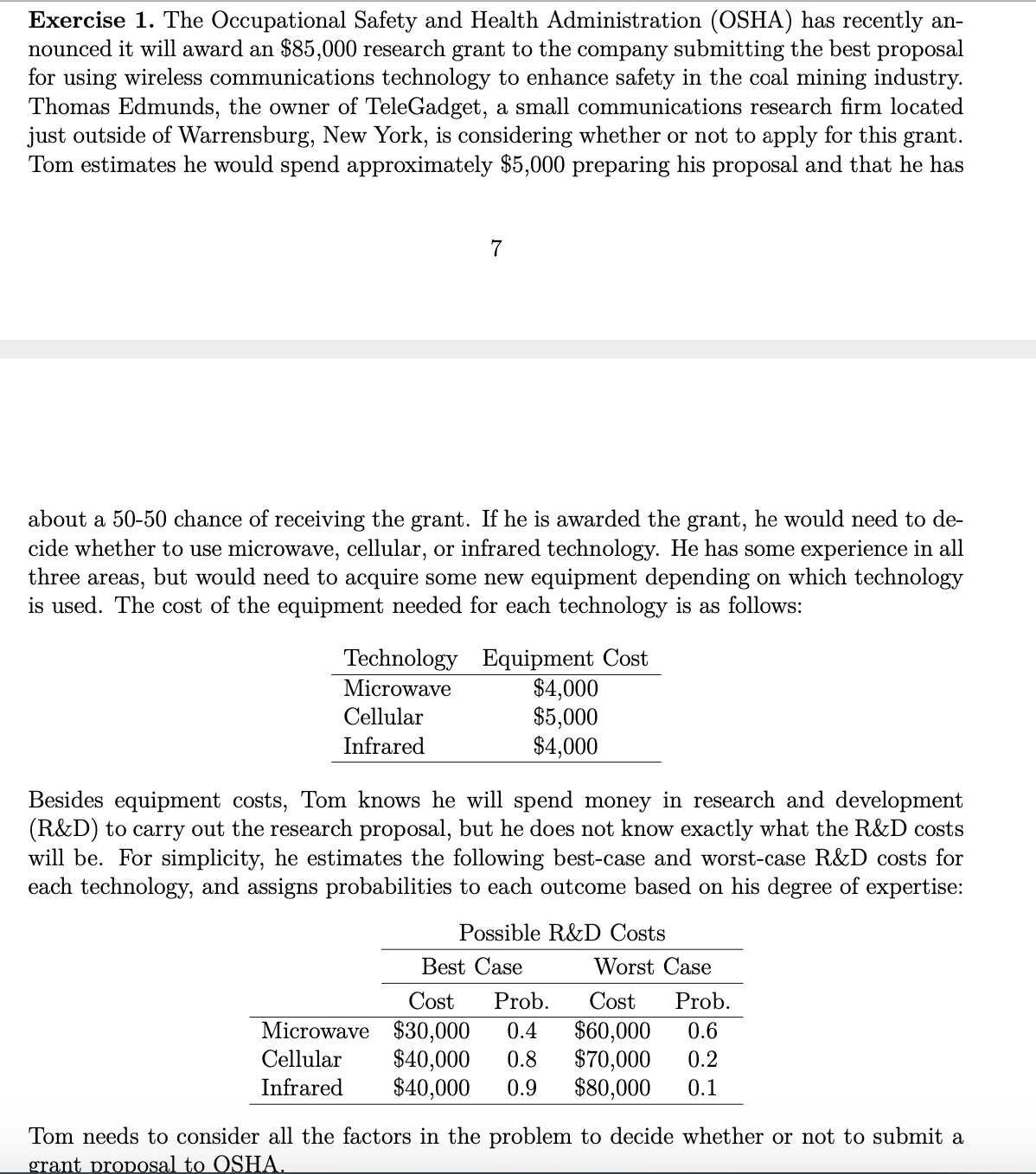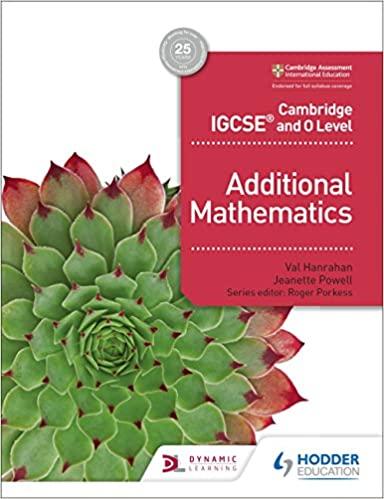Answered step by step
Verified Expert Solution
Question
1 Approved Answer
Exercise 1. The Occupational Safety and Health Administration (OSHA) has recently an- nounced it will award an $85,000 research grant to the company submitting


Exercise 1. The Occupational Safety and Health Administration (OSHA) has recently an- nounced it will award an $85,000 research grant to the company submitting the best proposal for using wireless communications technology to enhance safety in the coal mining industry. Thomas Edmunds, the owner of TeleGadget, a small communications research firm located just outside of Warrensburg, New York, is considering whether or not to apply for this grant. Tom estimates he would spend approximately $5,000 preparing his proposal and that he has 7 about a 50-50 chance of receiving the grant. If he is awarded the grant, he would need to de- cide whether to use microwave, cellular, or infrared technology. He has some experience in all three areas, but would need to acquire some new equipment depending on which technology is used. The cost of the equipment needed for each technology is as follows: Technology Equipment Cost Microwave $4,000 $5,000 $4,000 Cellular Infrared Besides equipment costs, Tom knows he will spend money in research and development (R&D) to carry out the research proposal, but he does not know exactly what the R&D costs will be. For simplicity, he estimates the following best-case and worst-case R&D costs for each technology, and assigns probabilities to each outcome based on his degree of expertise: Possible R&D Costs Best Case Worst Case Cost Prob. Cost Prob. Microwave $30,000 0.4 $60,000 0.6 Cellular $40,000 0.8 $70,000 0.2 Infrared $40,000 0.9 $80,000 0.1 Tom needs to consider all the factors in the problem to decide whether or not to submit a grant proposal to OSHA. (a) Create a decision tree for this problem. Which course of action maximizes the EMV? (b) Create the corresponding risk profile. Would you still follow the approach from part (a) after seeing the risk profile? Explain. (c) How small would the probability of receiving the grant have to be for it to no longer be wise to submit the grant proposal? (Hint: use Excel Solver.) (d) Create a strategy table for this problem (using a two-way Data Table) by varying both the probability of receiving the grant (from 0 to 1 in 0.1 increments) and the probability of high infrared R&D costs (from 0 to 0.5 in 0.1 increments). What are the main takeaways from this table?
Step by Step Solution
There are 3 Steps involved in it
Step: 1

Get Instant Access to Expert-Tailored Solutions
See step-by-step solutions with expert insights and AI powered tools for academic success
Step: 2

Step: 3

Ace Your Homework with AI
Get the answers you need in no time with our AI-driven, step-by-step assistance
Get Started


